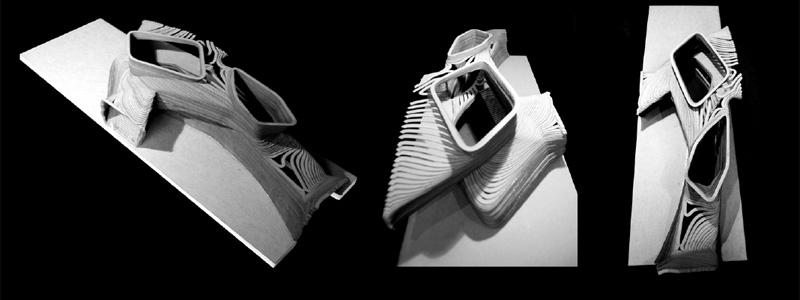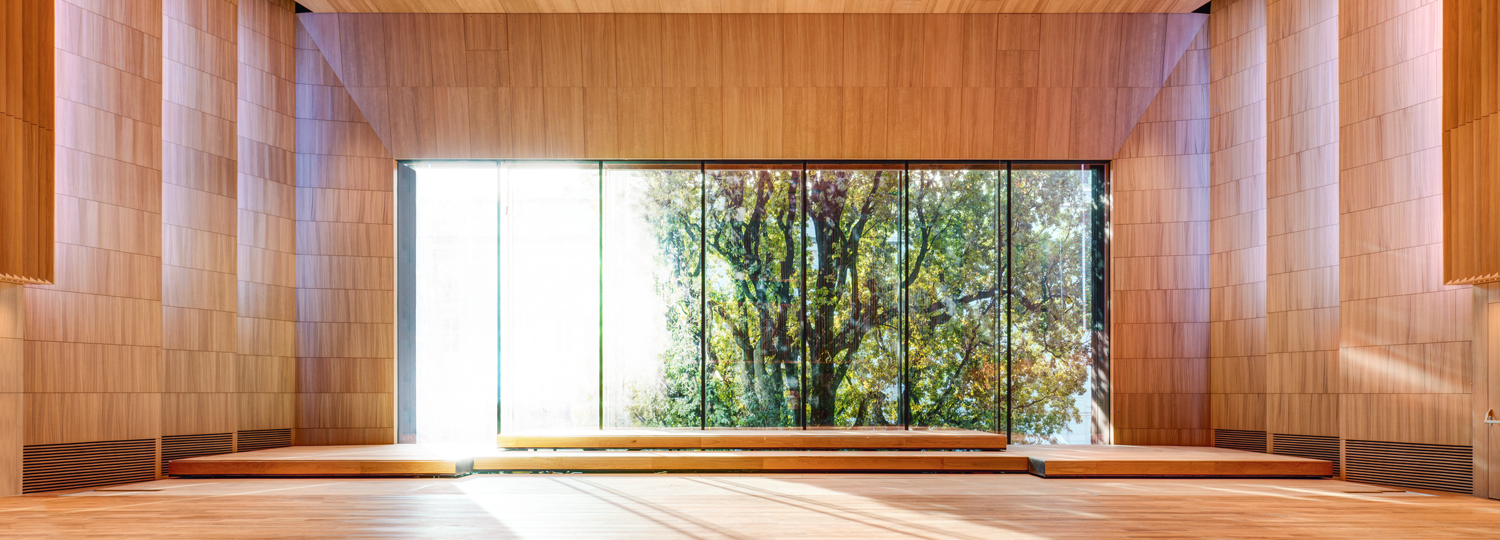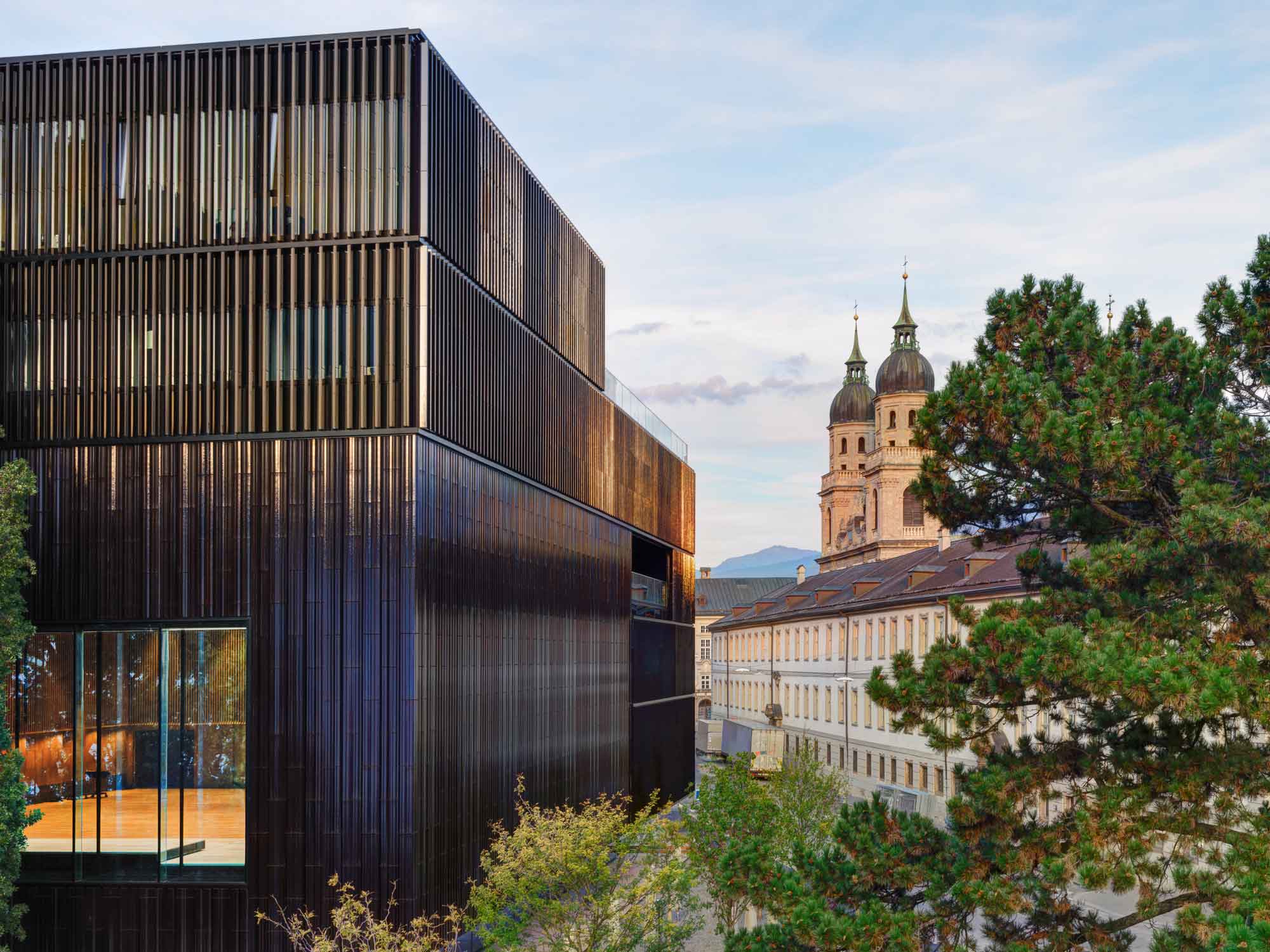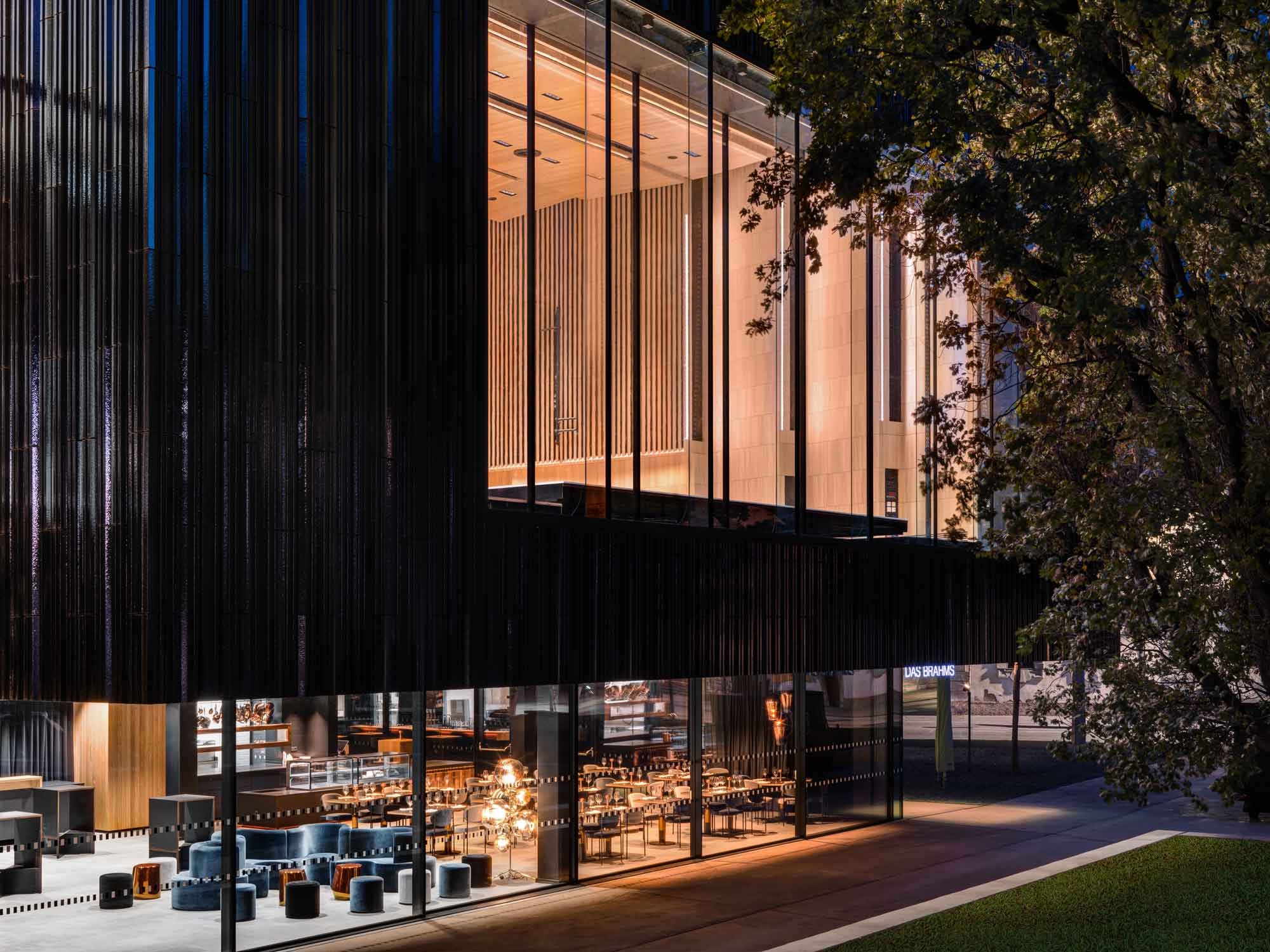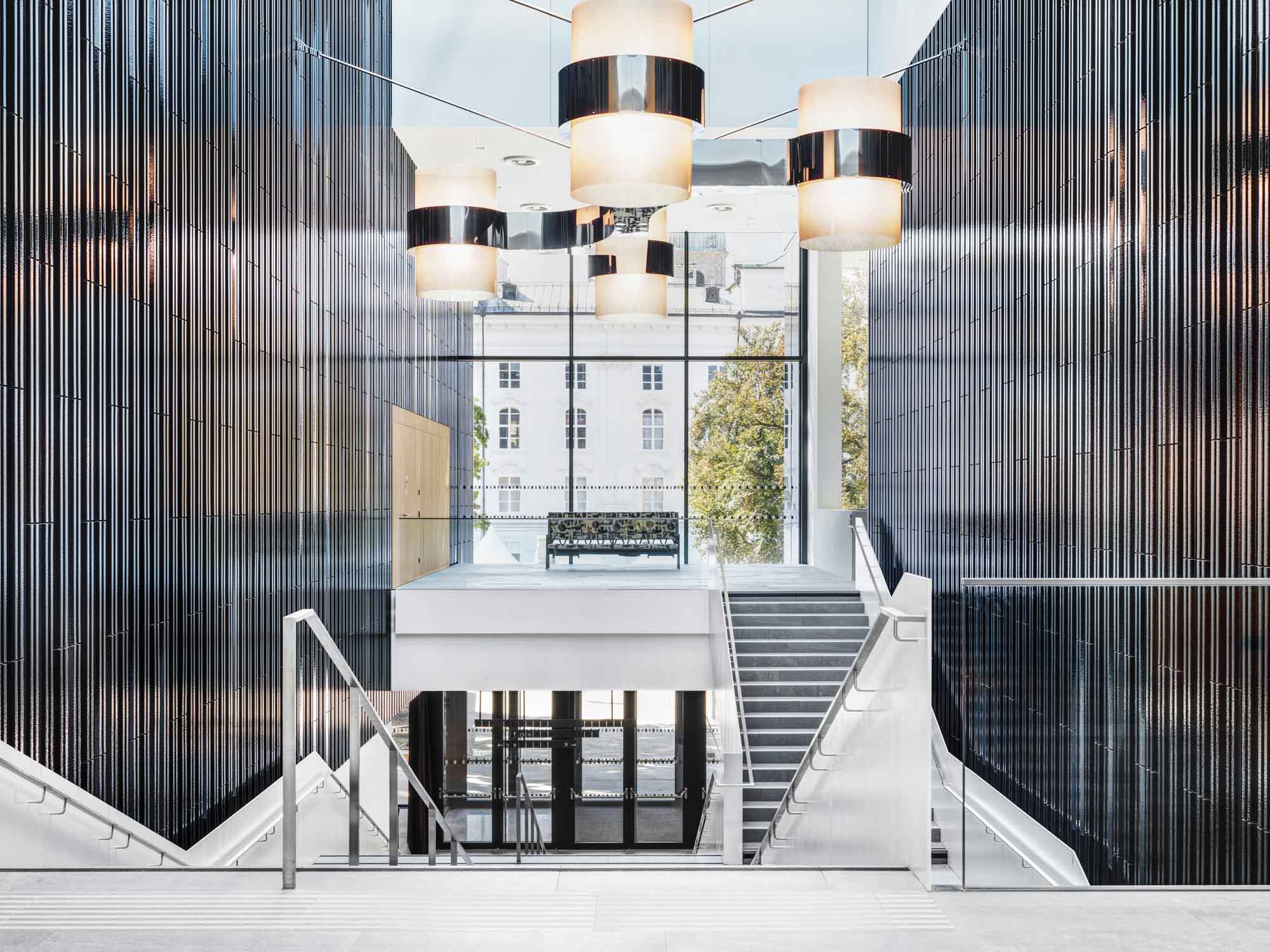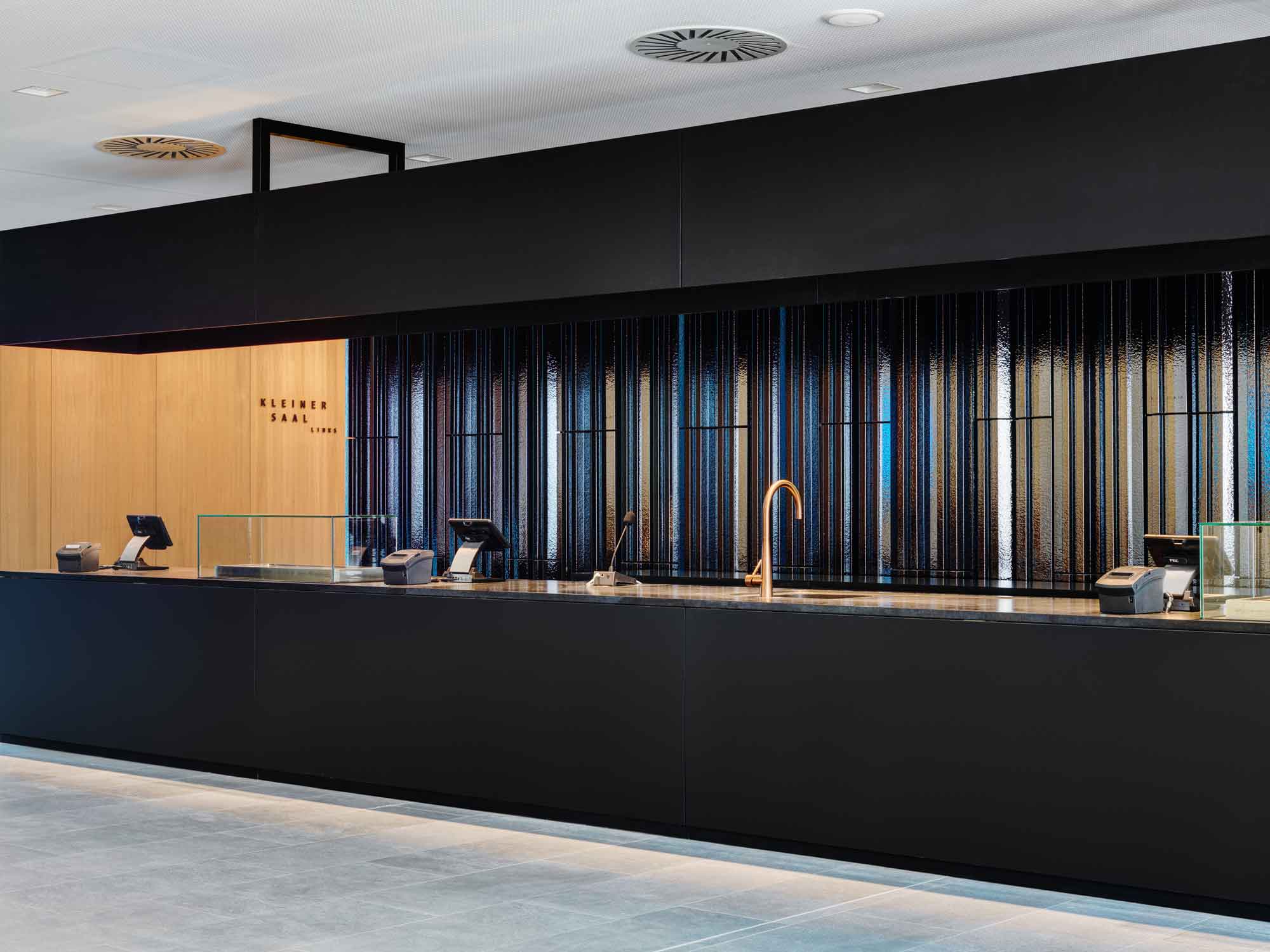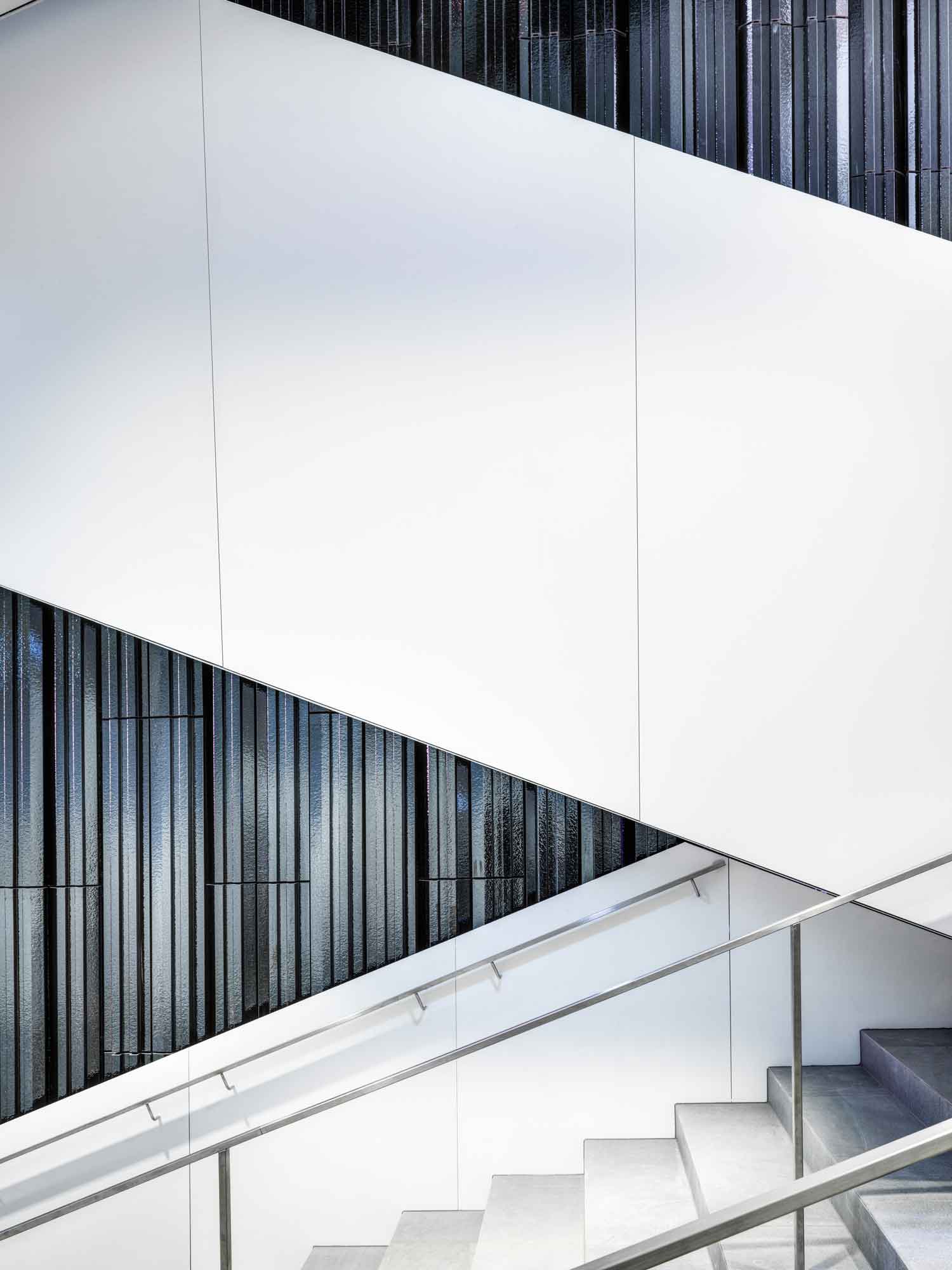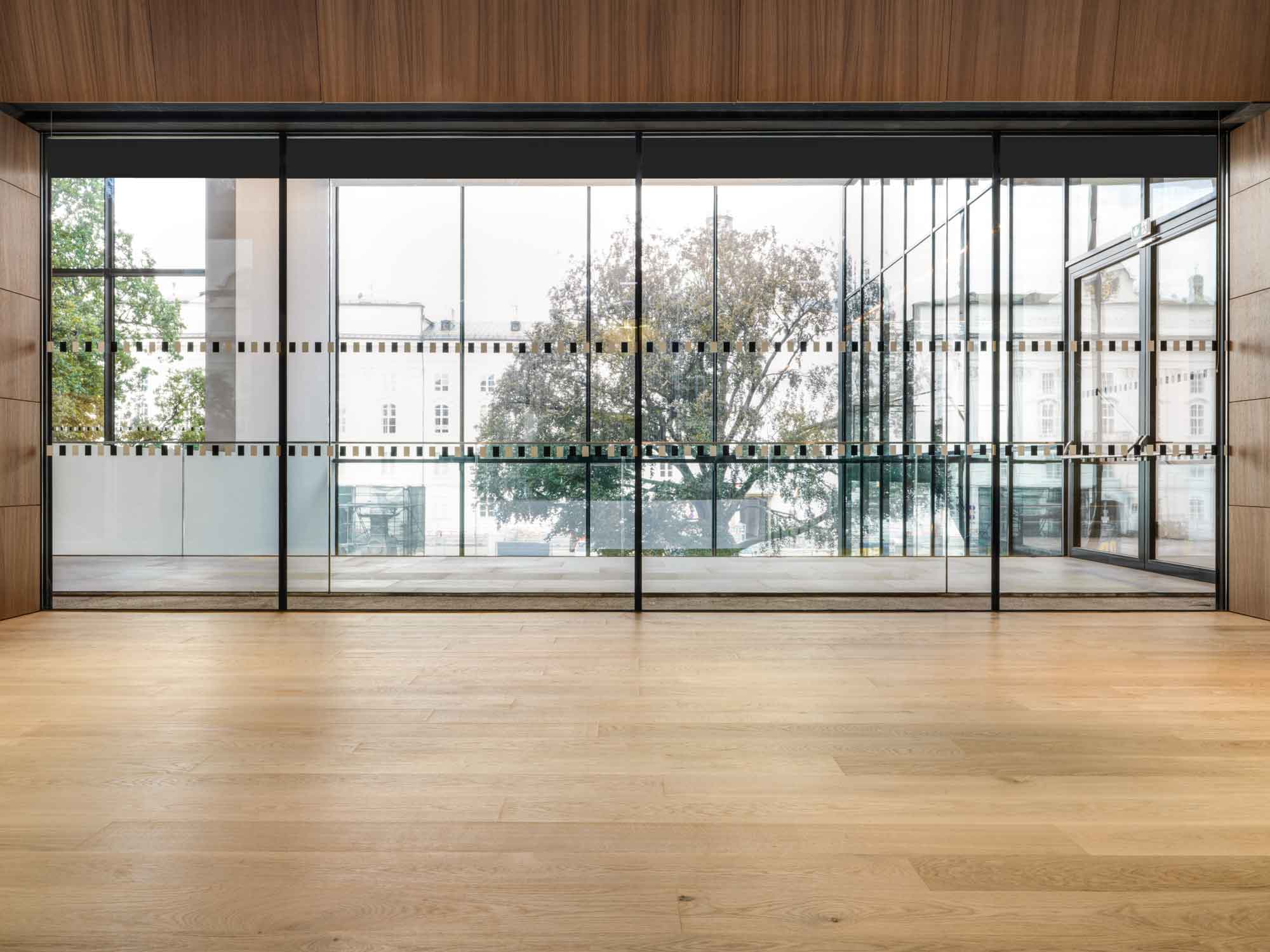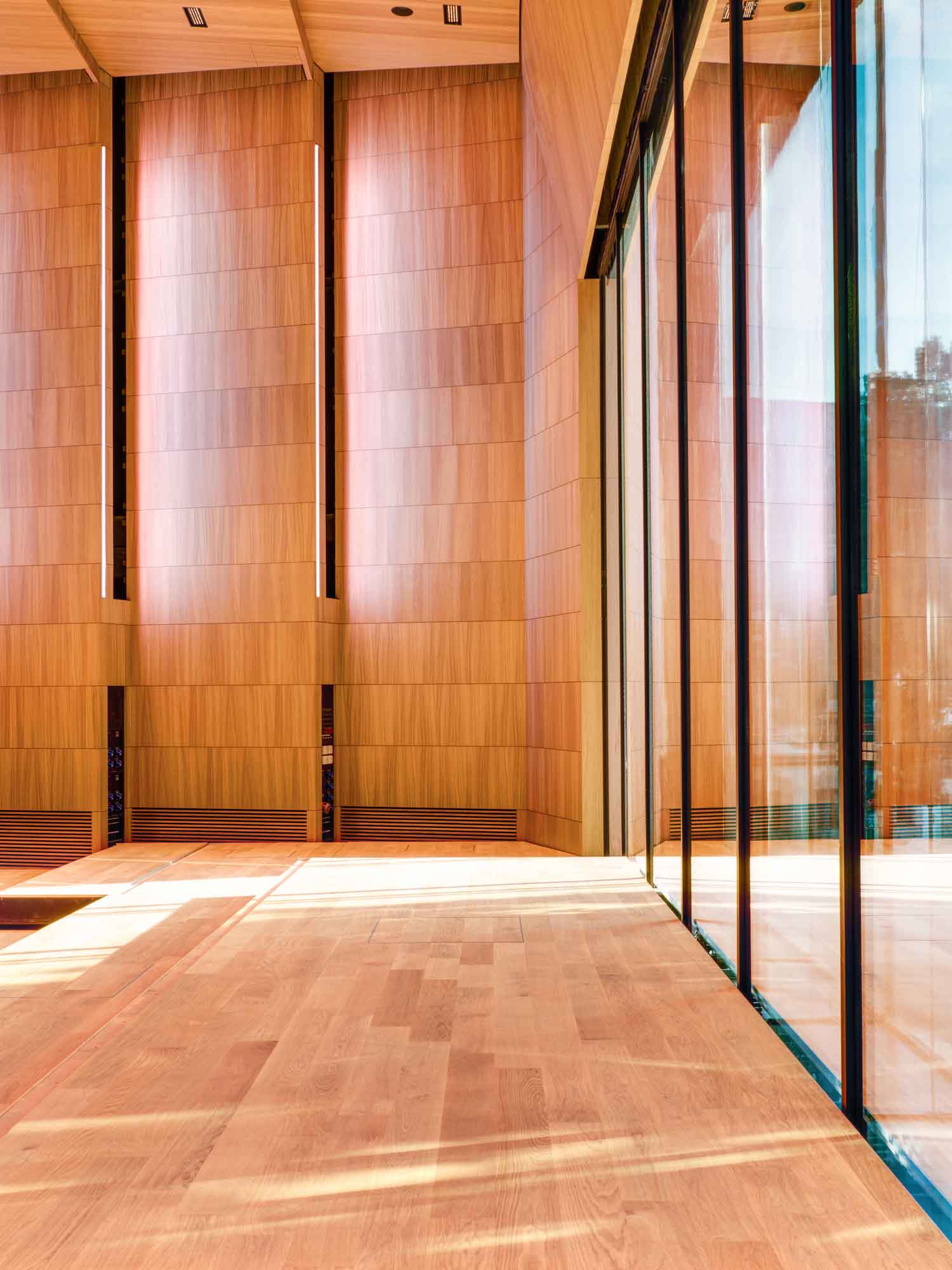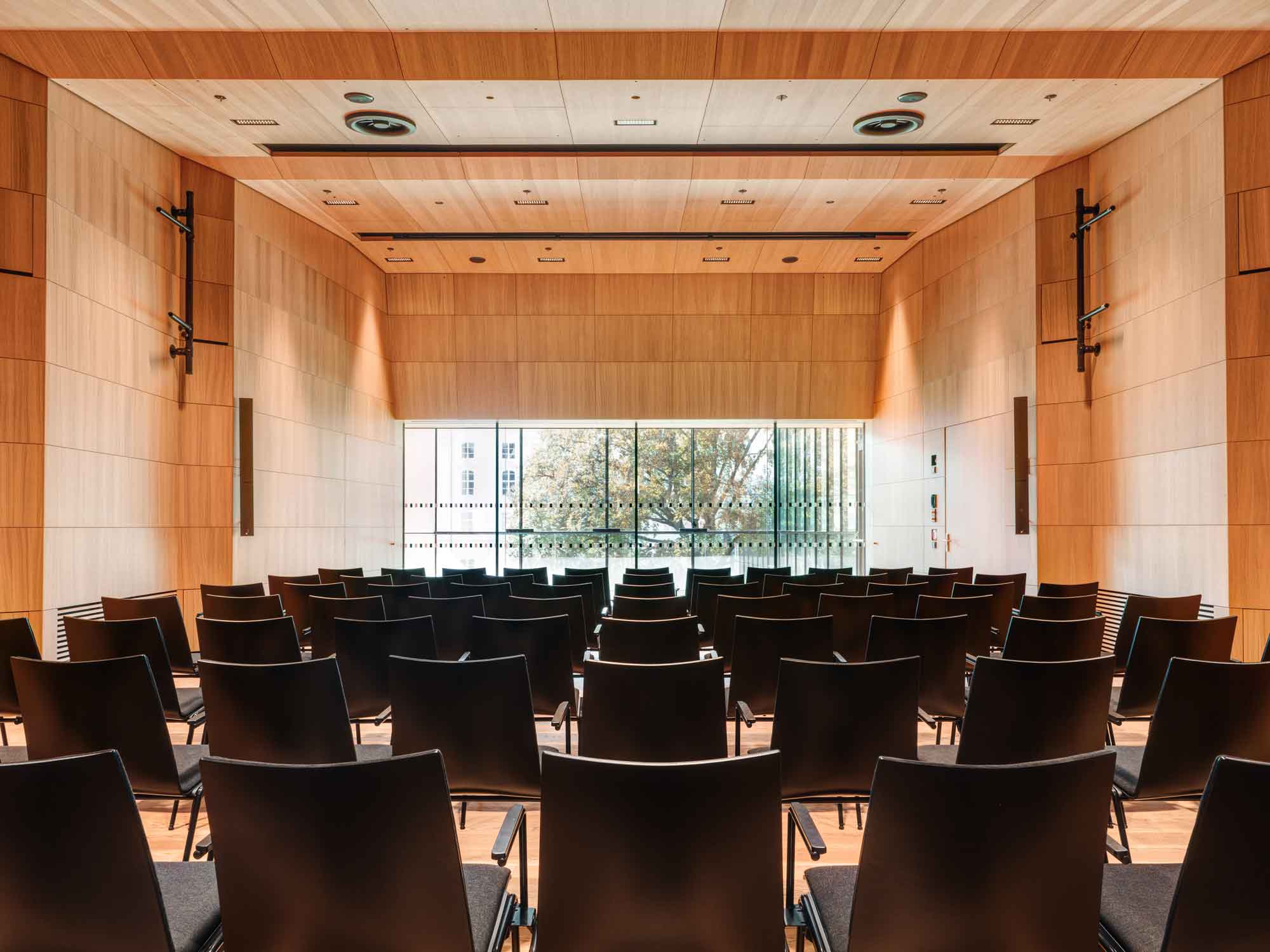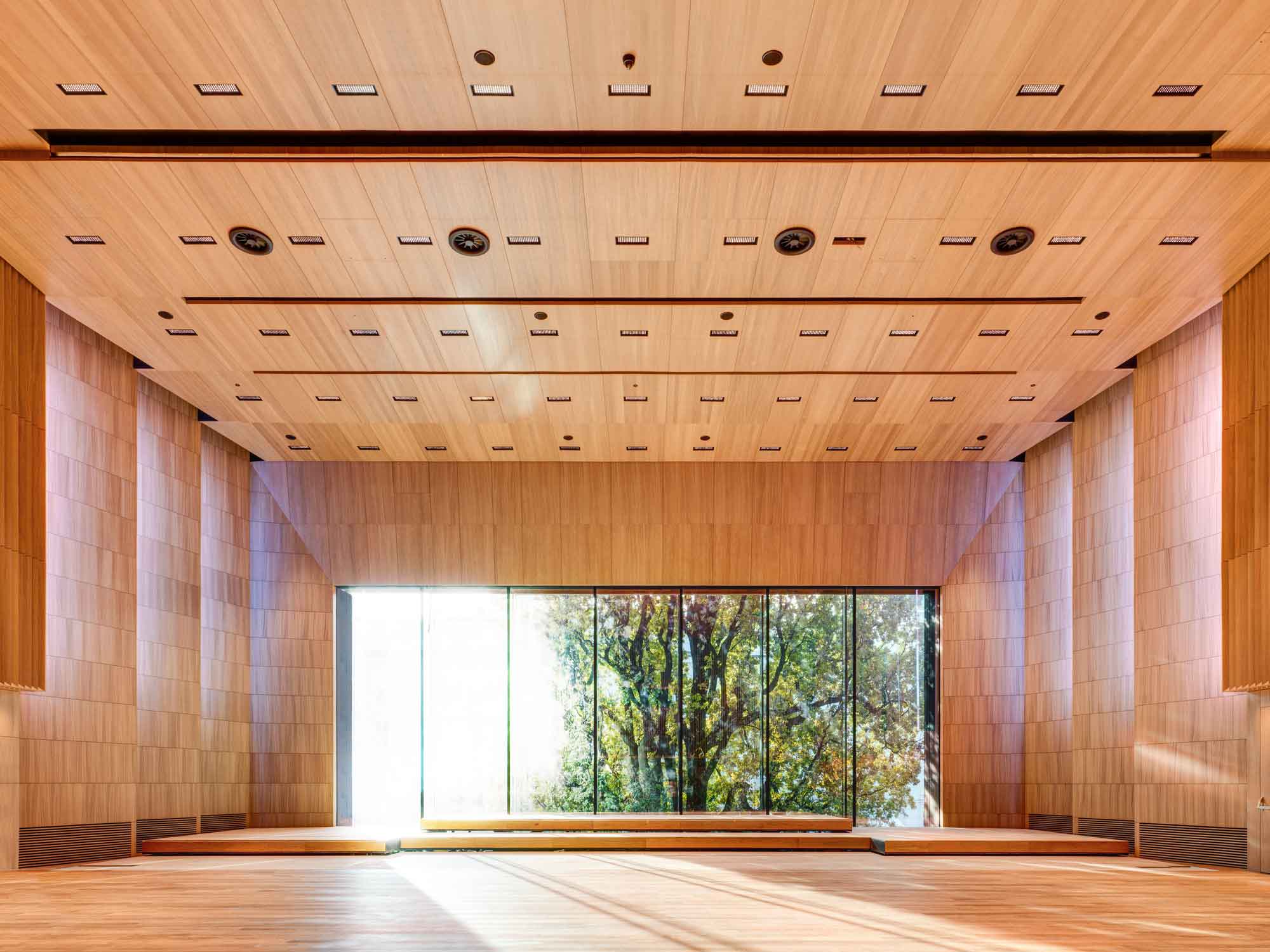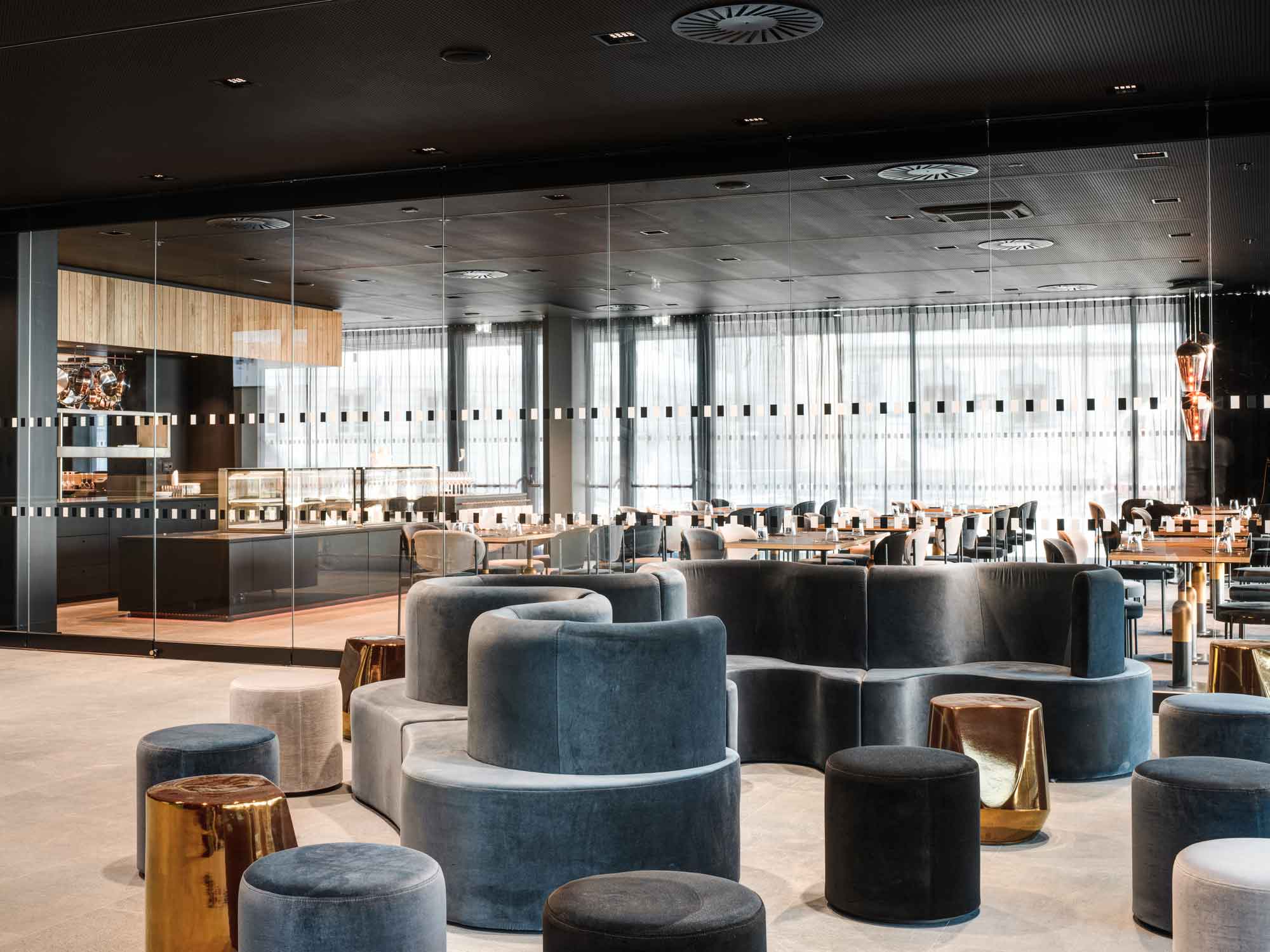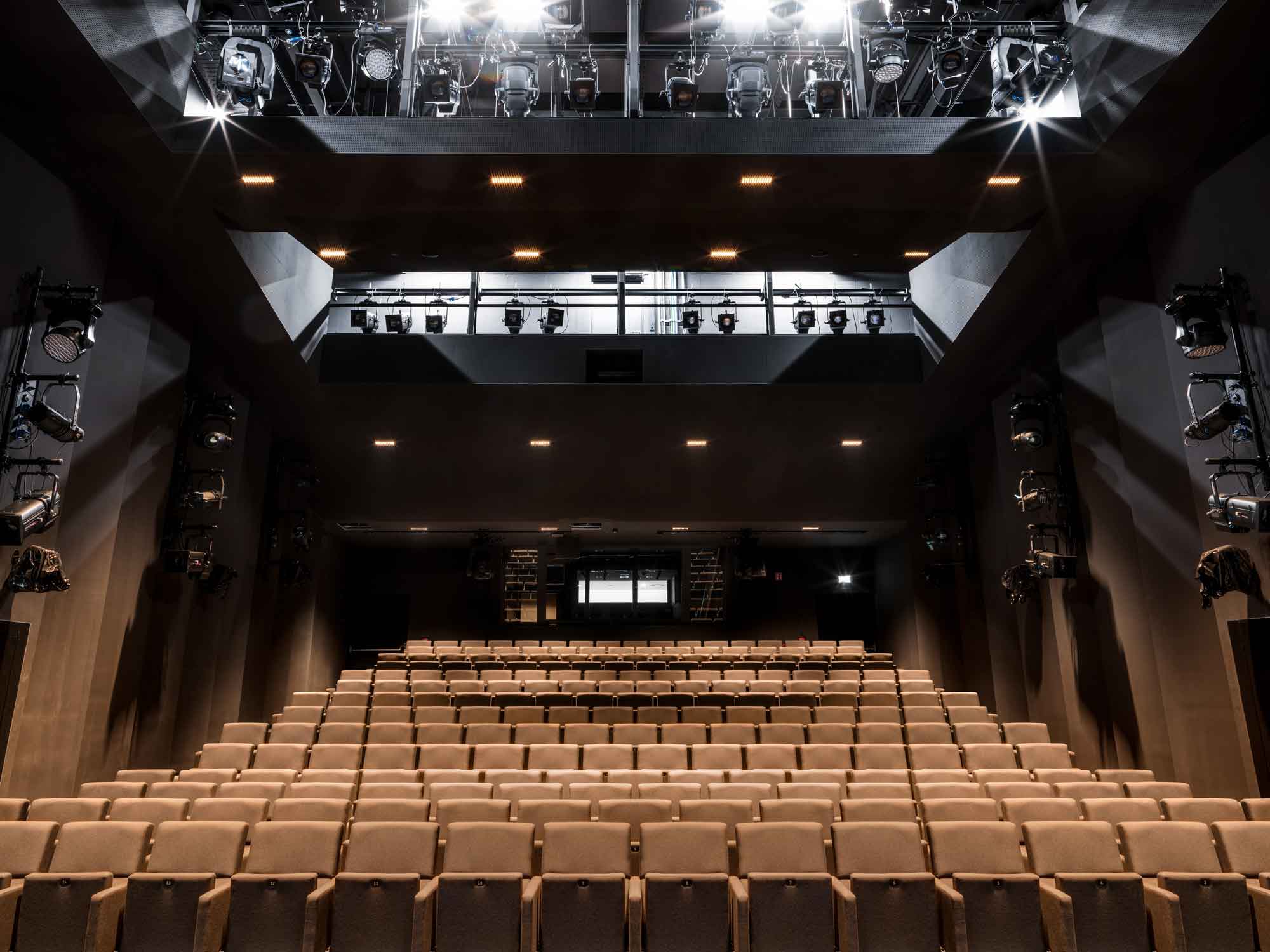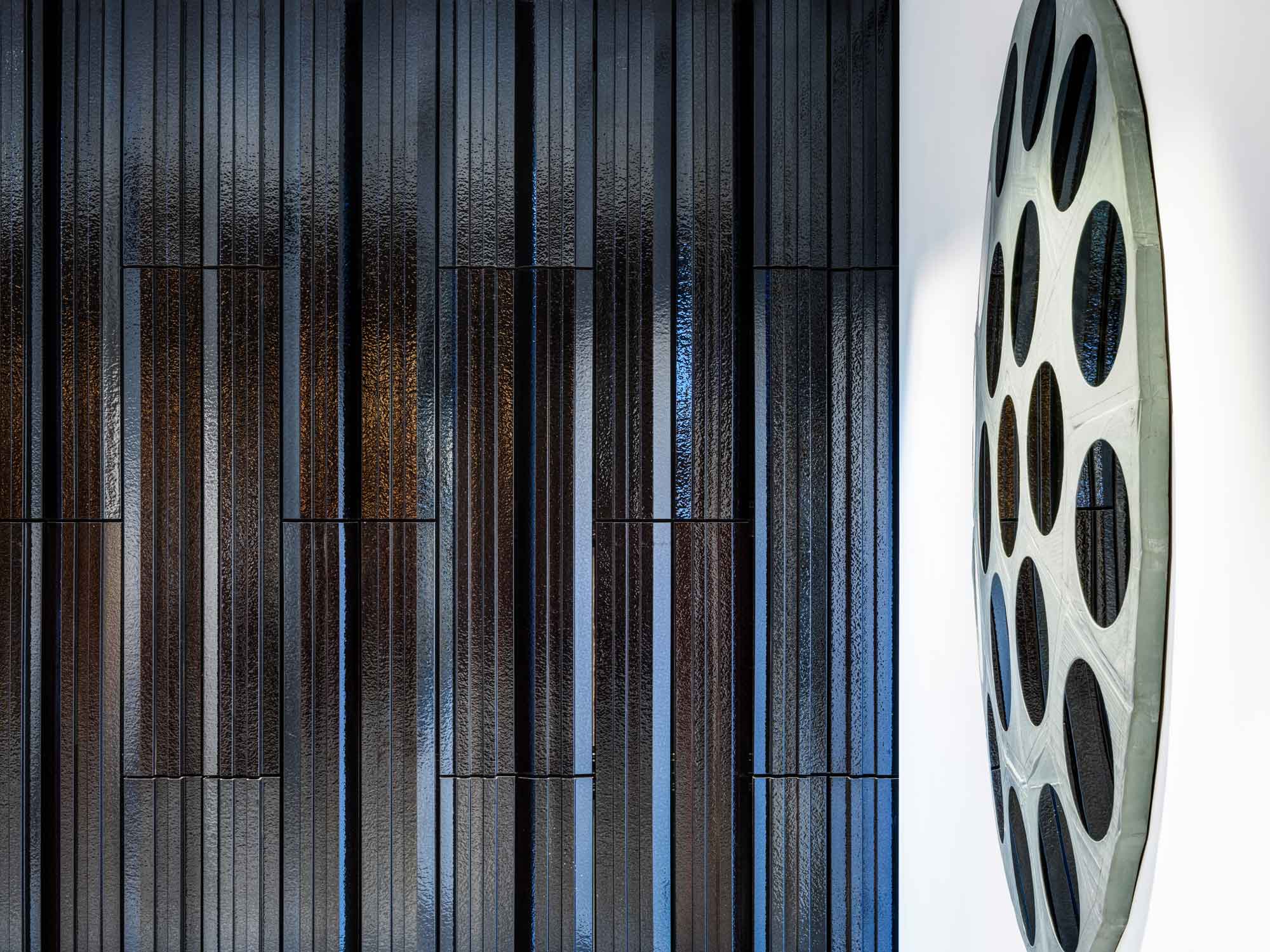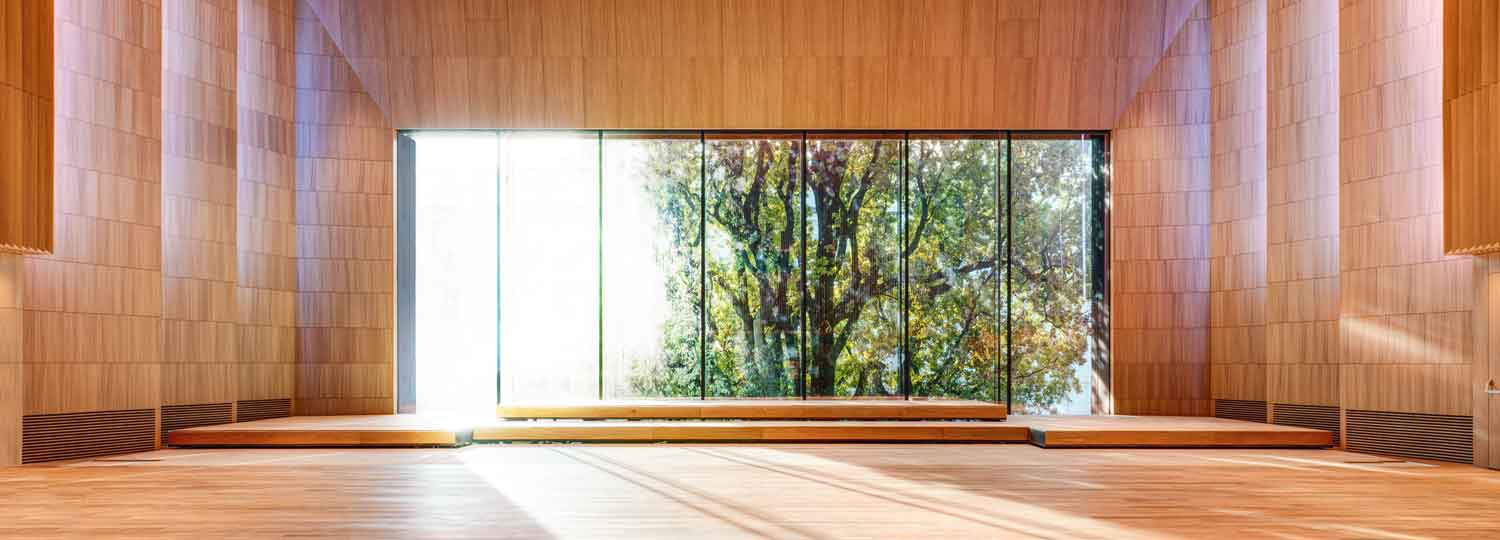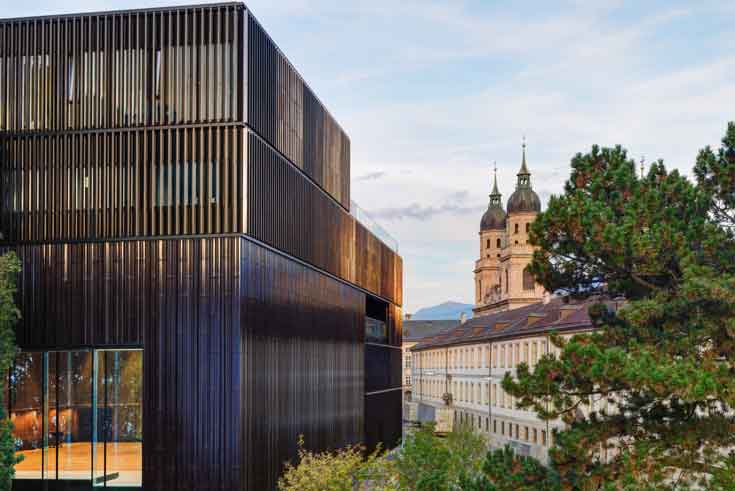A Cube Clad in Ceramic: House of Music in Innsbruck

Foto: Günther Egger
Standing in a prominent position next to the State Theatre and opposite the Hofburg of Innsbruck, the House of Music replaces the so-called “civic halls”, erected in 1890. These were largely destroyed in 1944, but were then reconstructed in a new form by 1966. The present development not only replaces the previous halls; it also provides space for seminars, rehearsals and administrative functions for many musical institutions. In this way, it proved possible to generate a vibrant location that acts as a centre for performances and education and also as a workplace.
The architects implemented the complex building assignment in a cubic form that is sculpturally articulated by means of setbacks, loggias and terraces. The extensive functional programme, comprising some 386 spaces, is coherently organized within the large volume: public halls for concerts and theatrical performances, together with the respective foyers, are situated on the lower storeys, while the library, administration, seminar and rehearsal spaces are stacked on the upper floors, with access on the eastern side via a separate entrance.
Without doubt, the centrepiece of the complex is the grand concert hall, which opens on to the forecourt through a large panorama window, thereby creating interesting visual links between inside and outside. During concerts, members of the audience can let their gaze wander in the direction of the Hofburg, while passers-by may catch a glimpse of the performance taking place inside. Flexible seating and a stage that is adjustable in height, mean that the hall is suitable not only for concerts, but for all kinds of events, thus forming a lively salon at the heart of the city.
Further Information:
Façades / Windows: Starmann, Klagenfurt
Acoustic Planning: Müller BBM, Planegg
Stage Planning: Walter Kottke Ingenieure, Bayreuth
Building Art: Werner Feiersinger, Wien
